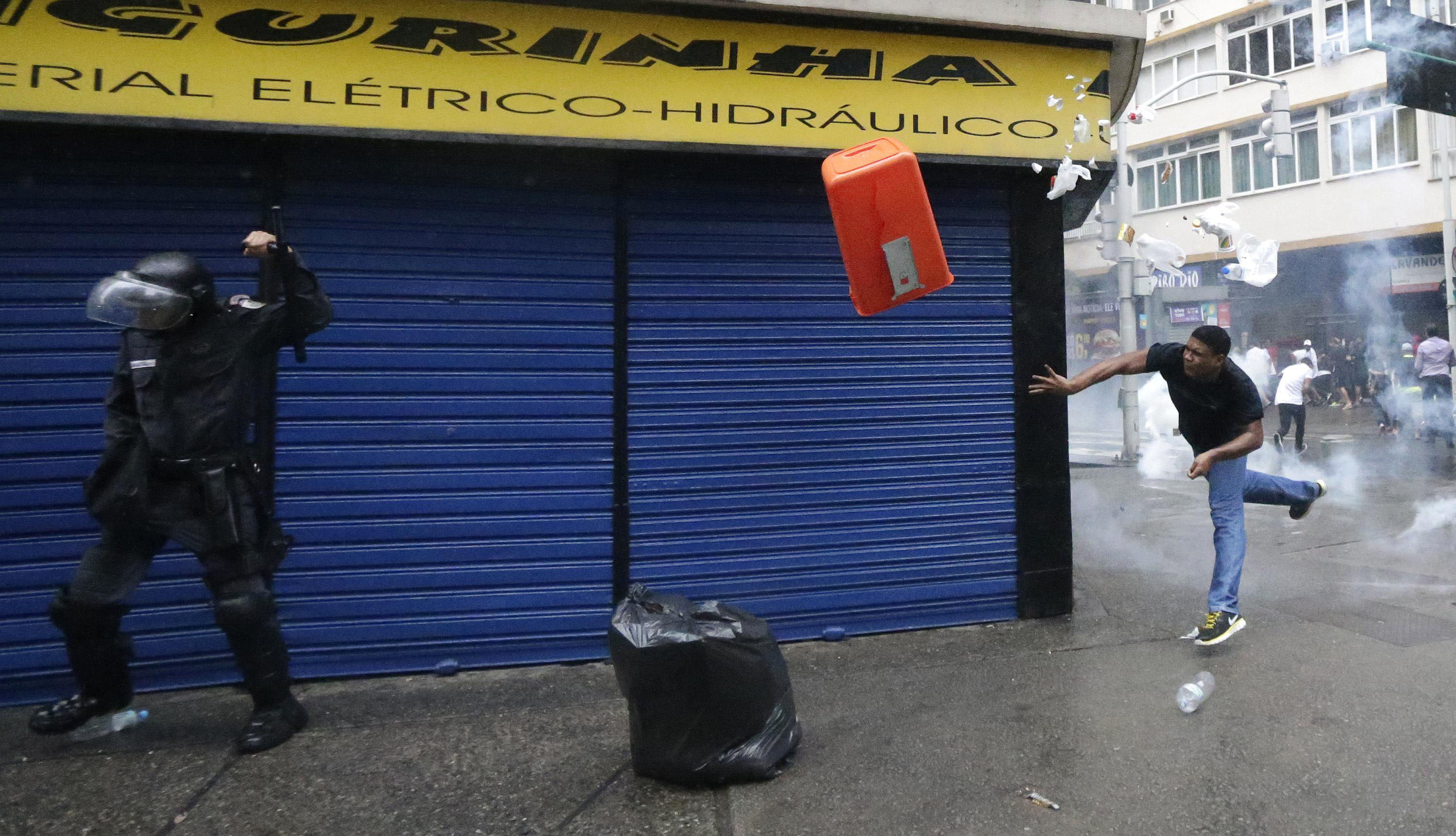When the battered body of a young Brazilian professional dancer, Douglas Rafael da Silva Pereira, was found in the Pavao-Pavaozinho favela in Rio de Janeiro, locals refused to believe the police statement — that his injuries were "compatible with a death caused by a fall."
Instead, many residents of the community located about a kilometer from Copacabana beach — one of the main backdrops to global coverage of the World Cup — took to the streets to express their anger. They set fire to barricades and even exchanged gunfire with the police, during which one man was killed.
Pavao-Pavaozinho was one of dozens of favelas that have been subjected to a police "pacification" program, designed to seize back control of the areas from drug traffickers and make them safer for the tournament and the 2016 Olympics. The family of Pereira, who was known as "DG," believe that the police mistook him for a drug trafficker and beat him to death.

















With your current subscription plan you can comment on stories. However, before writing your first comment, please create a display name in the Profile section of your subscriber account page.